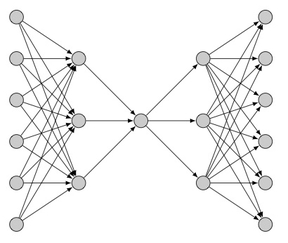Multi-Objective Tak Allocation for Wireless Sensor Networks
The Internet-of-Things (IoT) and especially Wireless Sensor Networks (WSNs) are comprised of multiple potentially low-power nodes distributed throughout the environment to monitor and manipulate. Nowadays this technologyis already used in many application fields like air quality monitoring, traffic control and environmental monitoring. However, especially for WSN, the major limiting factor remains the limited battery lifetime of the nodes especially in environments and use-cases where recharging or replacing the individual nodes or their batteries is infeasible. Consequently, energy efficiency is the key factor in nearly all applications of WSN technologies if they are to beadopted by real world users. Another important aspect is the generic dynamic nature of these networks. Nodes may fail because of mobility, environmental changes or simply because their battery is drained. Consequently, WSN need additional mechanisms to enforce reliability and reaction to these dynamic changes but still keep a specific level of performance regarding various metrics like bandwidth, latency and data quality.
In our research, we proposed a new multi-objective optimization algorithm enabling WSNs to optimize network metrics and mitigate changes in network topology through node failures by providing re-allocation of tasks based on continuous optimization of the task allocation. This allows the network to sustain task execution throughout node failures while simultaneously improving network metrics. The following figure shows a Single-Sink setup consisting of 10 non-constrained sensing tasks connected to a single actuating (sink) task, which is constrained to the two central tasks, which we used in our experiments:

More details can be found here:
- Dominik Weikert, Christoph Steup and Sanaz Mostaghim
- Multi-Objective Task Allocation for Wireless Sensor Networks
- In: Proceedings of the IEEE Symposium Series on Computational Intelligence (SSCI), Symposium on Computational Intelligence in IoT and Smart Cities (CIIoT), Australia, 2020